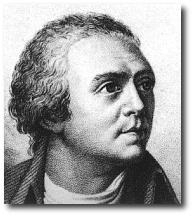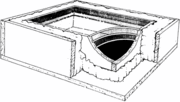De Saussure, Horace Bénédict
Horace Bénédict de Saussure (1740-1799), a Swiss physicist, geologist, and early Alpine explorer, invented the heliothermometer (1767), an instrument for measuring solar radiation. This instrument was an early forerunner to modern solar radiation measurement devices. De Saussure also built numerous “hot boxes”, miniature greenhouses made of wood with glass covers that trapped the sun’s energy. Studies based on the hot box led de Saussure to hypothesize that it was cooler in the mountains than in lower-lying regions because, although the same amount of sunlight strikes the mountains as the flat lands, because the air in the mountains is more transparent it cannot trap as much solar heat.
De Saussure’s hot box served as a model for nineteenth-century scientists demonstrating the relationship of the sun to the earth and its atmosphere. The hot box became the prototype for the solar collectors capable of cooking food, heating homes, and producing hot water. He also developed numerous other instruments, including the manometer, cyanometer, diaphonometer, anemometer and mountain eudiometer, the first electrometer (1766), a device for measuring electric potential by means of attraction or repulsion of charged bodies, and the first hygrometer, utilizing a human hair to measure humidity (1783).
Further Reading
Horace Bénédict de Saussure - Biography (Hebrew University of Jerusalem, Institute of Chemistry)
Horace de Saussure and his Hot Boxes of the 1700's (Solar Cookers International)

